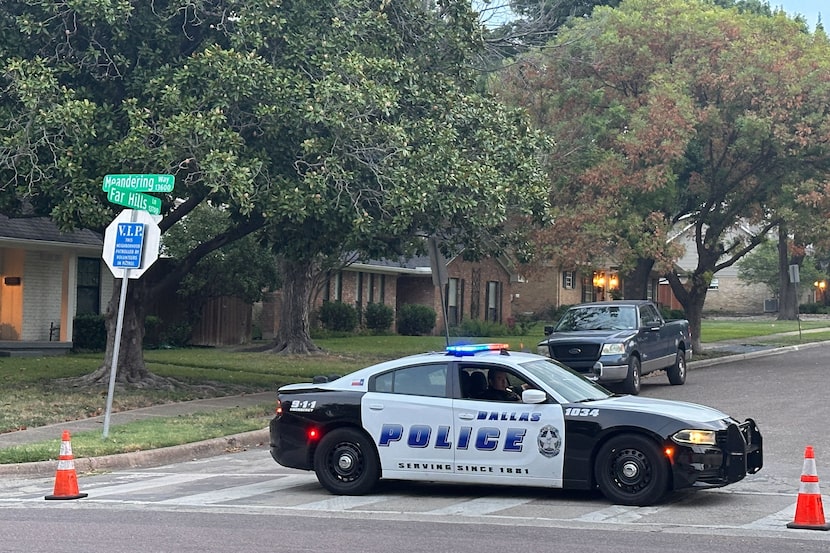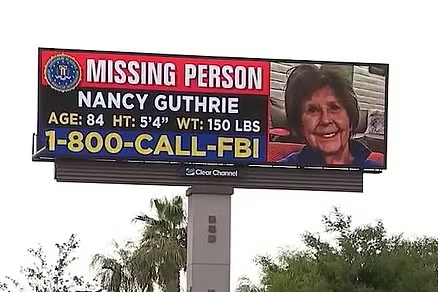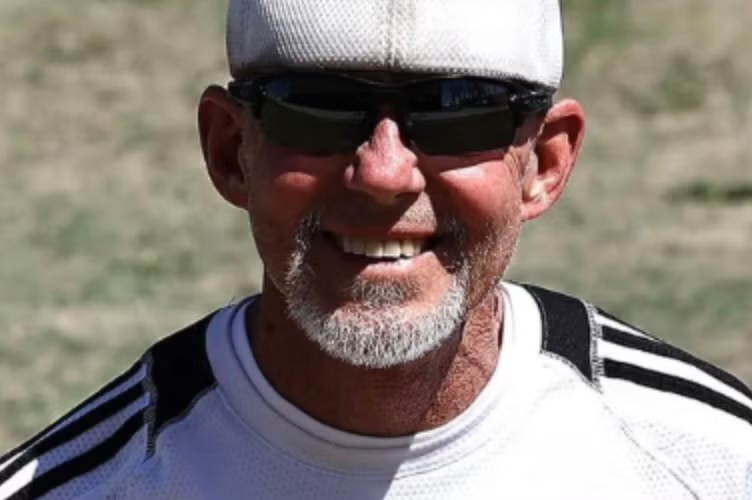Far North Dallas, a routine evening turned tragic on August 26, 2025, when a 911 call for help spiraled into a deadly confrontation. The Dallas Police Department responded to a disturbance at a home on Far Hills Lane, where a man, later identified as Martin James Benes, was reported to be wielding a knife, threatening both himself and others in a state of mental distress. What began as a plea for assistance from his family ended in a fatal encounter with a SWAT team, leaving a community grappling with questions about police tactics, mental health crises, and the use of force.
The incident began around 7:40 p.m. when a woman inside the home called 911, her voice trembling as she reported that Benes, a 46-year-old Dallas lawyer, was armed with a knife and acting erratically. According to police, Benes was in the midst of a mental health crisis, exacerbated by heavy drinking and frustration after his family hid his car keys to prevent him from driving. Court records reveal that Benes had recently cut off his court-ordered ankle monitor, injuring himself in the process, a sign of the turmoil that had been building in the days leading up to the standoff.


When officers arrived at the residence, they knocked on the door, and a woman answered, allowing them to enter. Inside, they encountered Benes, still clutching a knife and refusing to comply with commands to drop it. Fearing for their safety and that of the woman, the officers retreated outside, taking her with them. Benes briefly followed before retreating back into the home, barricading himself inside and setting the stage for a tense hours-long standoff.
As the situation escalated, the Dallas Police Department deployed its SWAT team, trained to handle high-risk scenarios. The team issued repeated verbal commands, urging Benes to exit the residence, but he remained defiant. With no resolution in sight, SWAT officers made the critical decision to enter the home. In an effort to subdue Benes without lethal force, they deployed a Taser not once, but twice. Both attempts, however, proved ineffective, as Benes, still armed with the knife, reportedly charged at the officers.
In a split-second decision, the SWAT team opened fire. The sound of three gunshots echoed through the neighborhood, and Benes fell, fatally wounded. Despite immediate efforts by the SWAT team’s tactical medical officer to save him, Benes was pronounced dead at the scene. No officers or civilians were injured in the confrontation, but the emotional toll on Benes’ family and the community was immediate and profound.
Paul Benes, Martin’s older brother, who had made the initial 911 call hoping to get help for his sibling, was devastated. “They went in there fully loaded, machine gun-looking things,” he recounted, his voice heavy with grief. He insisted that his brother’s prior legal troubles—a felony warrant for aggravated assault with a deadly weapon in a family violence case, along with charges of criminal mischief and resisting arrest earlier in the year—did not justify the outcome. Paul claimed that Martin’s cases were likely to be dropped, painting a picture of a man whose mental health struggles had spiraled out of control, not a hardened criminal deserving of lethal force.
Martin Benes was no stranger to the legal system, but his family emphasized his accomplishments as much as his challenges. A father of two, he had worked for prestigious law firms and was remembered as a loving, if troubled, individual. His mother, Judith Jane Benes, spoke of his recent struggles with alcohol and mental health, which had intensified in the days before the shooting. The family’s heartbreak was palpable as they mourned a man they believed could have been saved with a different approach.
Dallas Police Chief Daniel Comeaux addressed the media on August 27, 2025, providing a detailed account of the incident. He confirmed that Benes had an active felony warrant for aggravated assault with a deadly weapon in a family violence case, though specifics about the alleged offense remained undisclosed. Comeaux emphasized that the SWAT team had attempted to use “less-than-lethal” measures, including the Taser, to resolve the situation peacefully. “They tried to take the suspect into custody,” he said, “but the suspect charged the SWAT officers with a knife, and he was then shot.”
The shooting has sparked a wave of scrutiny, with Benes’ family and community advocates questioning whether the police response was proportionate. The decision to deploy a heavily armed SWAT team in response to a mental health crisis has reignited debates about how law enforcement handles such situations. Critics argue that specialized crisis intervention teams, equipped to de-escalate mental health emergencies, might have yielded a different outcome.
The Dallas Police Department has pledged transparency as the investigation unfolds. The incident has been reported to the Office of Community Police Oversight and the Dallas County District Attorney’s Office, both of which will conduct independent probes. The department’s Special Investigations Unit is also reviewing the shooting, which marks the sixth fatal police shooting in Dallas in 2025. Chief Comeaux declined to take questions during the initial press conference, promising further details in the coming days.
For now, the Far Hills Lane community remains in mourning, haunted by the echoes of those three fateful shots. The loss of Martin Benes has left his family grappling with grief and unanswered questions, while the city of Dallas faces another reckoning over the delicate balance between public safety and compassion in crisis. As investigations proceed, the hope is that lessons learned will prevent future tragedies and honor the memory of a man whose life ended far too soon.



